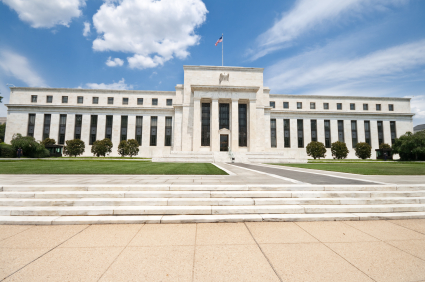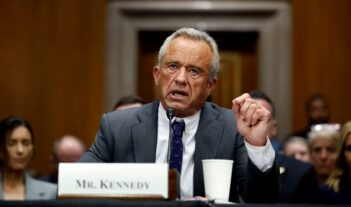
After Dodd-Frank, financial regulations of independent agencies should be subject to OIRA review.
President Obama’s announcement yesterday of his nominee to head the new Consumer Financial Protection Bureau (CFPB) makes a nearly decade-old suggestion particularly timely.
In 2002, Cass R. Sunstein and co-author Robert W. Hahn argued that independent agency-promulgated regulations should be subject to review by the White House’s Office of Information and Regulatory Affairs (OIRA). However, even though Sunstein has been serving as the OIRA Administrator since 2009, the change has yet to occur.
Executive Order 12,866 currently mandates OIRA review of certain agency regulations, but it exempts independent agencies, like the Federal Reserve and the CFPB. However, another order recently issued by President Obama instructs those same independent agencies to follow the principles in Executive Order 12,866.
The president should go one step further and instruct independent agencies to follow the procedures for OIRA review provided in Executive Order 12,866. If he won’t do this, then Congress should make Federal Reserve and CFPB financial regulations subject to OIRA review.
The Dodd-Frank Wall Street Reform and Consumer Protection Act (Dodd-Frank) significantly expanded the rule-making authority of the Federal Reserve, giving it the power to create risk management standards and to set the fees that banks can charge merchants when customers use their debit cards.
Dodd-Frank also created the CFPB, which is charged with protecting consumers by promulgating and enforcing financial regulations. The CFPB has the statutory authority to develop standardized consumer information forms, to set guidelines for financial disclosures to consumers, and to identify “unfair, deceptive, or abusive acts or practices” in consumer financial transactions.
As is typical of agency mandates, Dodd-Frank gives significant leeway in promulgating these new regulations to the Federal Reserve and CFPB. Yet, while these agencies are not free from all oversight, the current system of oversight does not sufficiently monitor the Federal Reserve and CFPB’s rulemaking processes.
Subjecting the Federal Reserve and CFPB to OIRA review would likely yield a number of benefits, including increased public trust through greater government transparency, enhanced alignment with democratic ideals, reduced risk that regulated firms will capture the agencies, and better inter-agency coordination. The benefits of OIRA oversight considerably overshadow any potential drawbacks.
Increasing public trust in the Federal Reserve may seem like a softer objective, but public trust in financial regulators is crucial to maintain consumer confidence. The Federal Reserve’s approval rating plummeted after the financial crisis, but increased transparency in its decision-making through OIRA review would likely counteract some of this decline.
Requiring a White House office to exercise input into the rulemaking process also underscores the importance of public accountability within the regulatory process, with the public being represented by the democratically elected president of the entire United States.
Finally, agency oversight by OIRA will also facilitate the laudable goal, expressed most recently by President Obama, of avoiding “redundant, inconsistent, or overlapping” regulations through “greater coordination across agencies.” It is widely accepted that a lack of coordination by financial regulators contributed to the recent financial crisis.
OIRA oversight of the Federal Reserve’s financial regulations is the right step to take now that financial regulators possess significantly more power following the passage of Dodd-Frank. The president or Congress should act soon to make oversight a reality.



